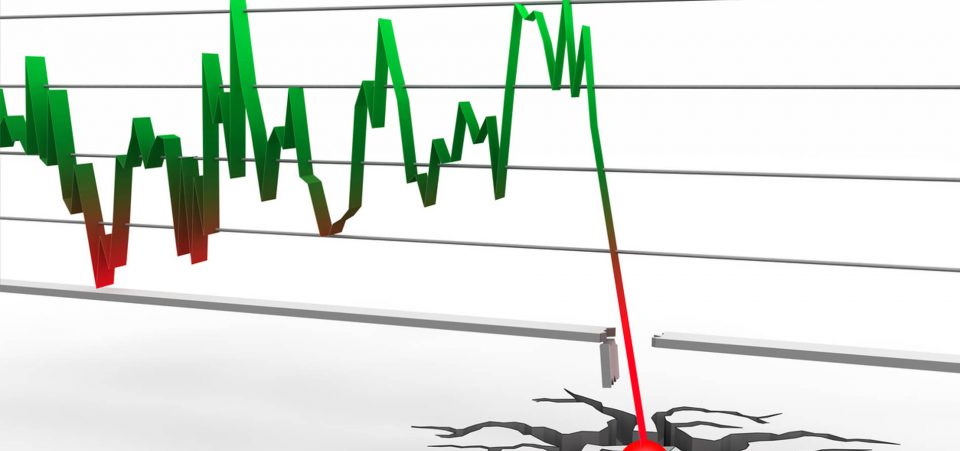Robot algorithms to blame?
February 7, 2018 | Expert Insights

A global sell-off sparked by the decline of the American stock market resulted in investors losing trillions of Dollars within days. Was a robot algorithm to blame for the ferocious market sell-off?
Background
Sell-off is the rapid selling of securities such as stocks, bonds and commodities. The increase in supply leads to a decline in the value of the security.
In 2018, the Dow Jones reached an all-time high of 26,000. However, soon afterward, the stock market began to decline. In February, it witnessed its steepest fall in six years. The decline was mainly due to large US tech companies like Google, Exxon Mobil, Apple and Chevron reporting weak earnings. As an immediate outcome, global markets around the world experienced a sharp decline thus sparking a world-wide sell-off. Stock markets around the world suffered steep falls and nearly $4 trillion have been lost within just days. Only eight days ago they had been enjoying record highs in terms of value. Europe and Asian markets were particularly hit by the sell-off.
European markets experienced their worst day since Britain’s vote in 2016 to leave the EU and started down by as much as 3 percent. Frankfurt and Paris too suffered losses. In Asia, MSCI’s broadest index of Asia-Pacific shares outside Japan slid 3.4 percent. The Indian stock markets suffered as well, and investors lost Rs 9.6 lakh crores in the span of three days.
Analysts have blamed a number of factors for the sell-off - including stock market correction and the underperformance of top American companies like Alphabet and Apple.
In mathematics and computer science, an algorithm is an unambiguous specification of how to solve a class of problems. Algorithms can perform calculation, data processing and automated reasoning tasks.
Analysis
As trading becomes more reliant on technology, it has also become driven by a system called algo trading. This is a system when market transactions are made through algorithm trading. They are advanced mathematical models to make high-speed trading decisions for humans. Experts have suggested the “ferocious” global sell-off that saw investors lose trillions of dollars in just three days could have been a result of this algorithm. Some even noted that it is possible that algorithms began to react to a singular report about US jobs market.
Salman Ahmed, chief investment strategist at Lombard Odier said, “The rise of algorithm-based trading means that there are in these algorithms some levels which trigger sell-off, i.e. sell orders. Yes, I can argue that we needed some kind of correction, given what has happened over the last few months. But the ferociousness of the intra-day sell-off is driven by these pre-set sell orders, which come programmed in these algorithms automatically.
Tom Stevenson, Investment Director at Fidelity Personal Investing also attributed the explosive speed in which the markets fell, to machines taking decisions. “The explosive speed of the fall … that is done by machines. Everyone looks for a reason for why the fall happened. One of them was that bond yields rose up towards the magic number of 3%. There seems to have been a trigger at 2.9% for automatic trading to sell and once that trigger was pulled the markets went into freefall.”
Piers Curran, head of trading at Amplify Trading, explained that algorithms will be set up to react in certain ways to certain situations. He said, “One might work by a stop loss criteria, selling an asset as it falls to prevent further losses. So if the Dow Jones Index has dropped 5% it may trigger the machine to sell, but if you have a huge number of these algorithms hitting stop losses at the same time that produces further falls which produce further stop losses.”
Ahmed however said that a global recession is unlikely in the next six to nine months at least. He added, “The global environment and the indicators we are looking at indicate no probability of a recession in the next six to nine months, so things will stabilize. But, yes, we have to be very careful about how we are taking risk and what is an asset class and what’s not an asset class.”
Assessment
Our assessment is that this indicates the inherent flaws that exist when trading is solely dependent on machines running on mathematical algorithms. The market reaction to these single numbers was massively exaggerated because of the machine trades. However, experts remain convinced that given the global economy is currently growing, a recession is unlikely to take place.
There is another factor that needs to be considered at this junction. With the growth in artificial intelligence, machines are likely to take crucial decisions on various aspects of life in the near future. Can a war be sparked by this?








Comments